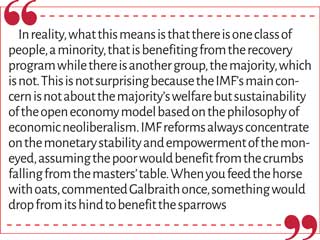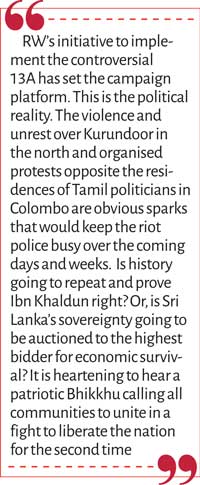Thursday Feb 19, 2026
Thursday Feb 19, 2026
Friday, 1 September 2023 00:20 - - {{hitsCtrl.values.hits}}
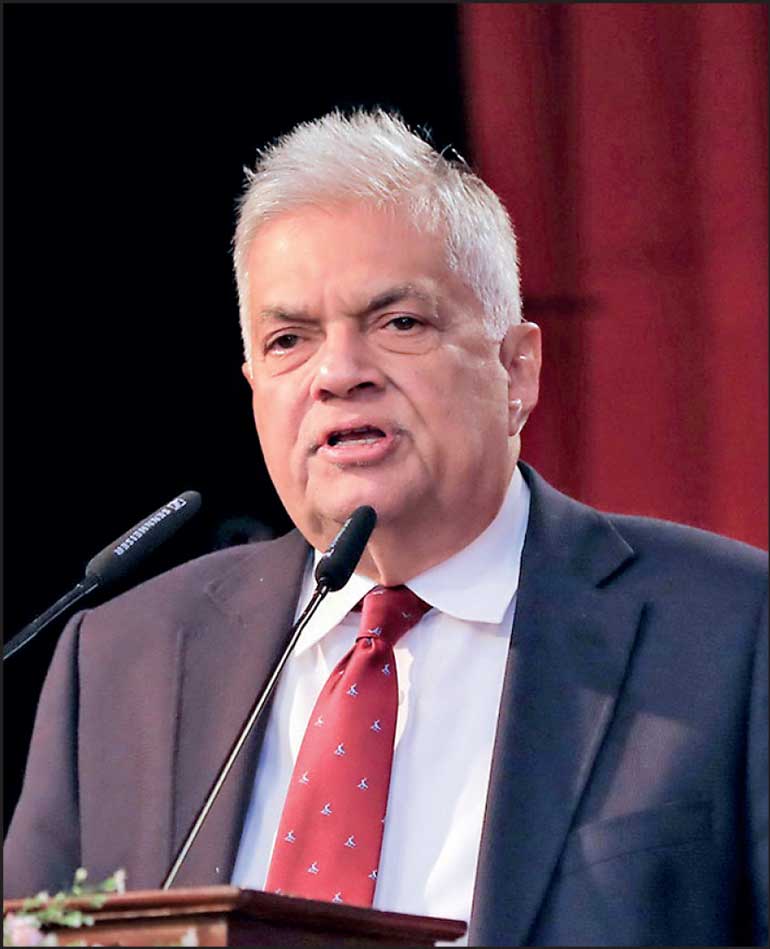
President Ranil Wickremesinghe
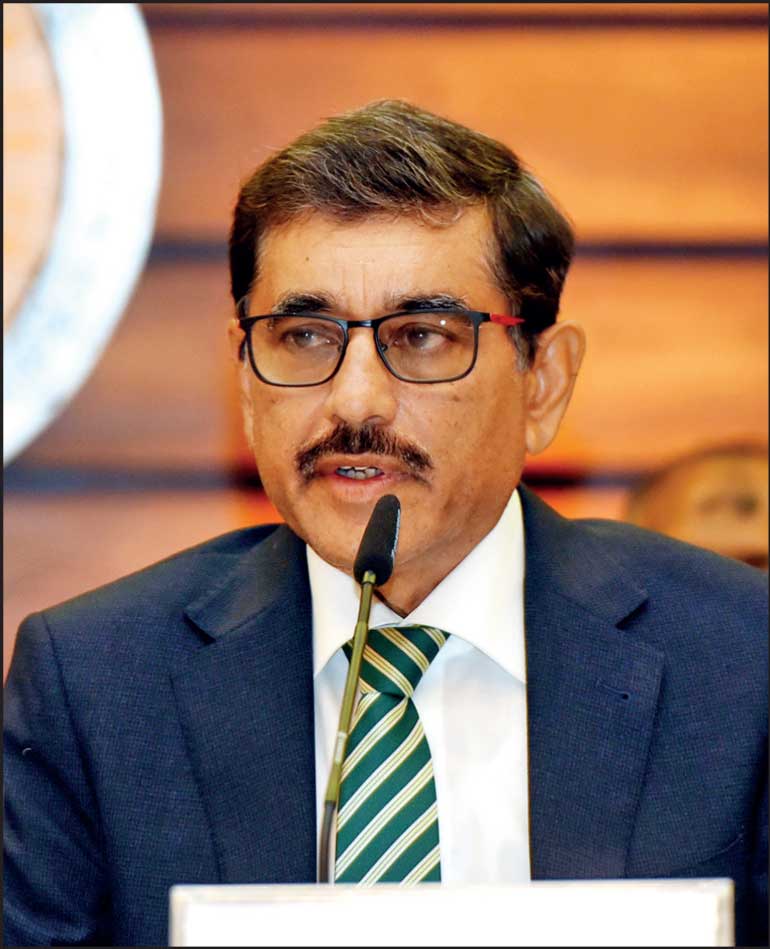
CBSL Governor Dr. Nandalal Weerasinghe
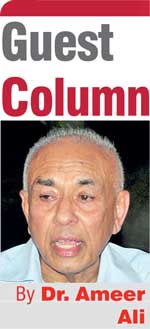 “The past resembles the future more than one drop of water resembles another” (Ibn Khaldun)
“The past resembles the future more than one drop of water resembles another” (Ibn Khaldun)
When Covid-19 entered and paralysed Sri Lanka in 2021, it only hastened the bankruptcy, which was bound to occur in any case, after decades of reckless mismanagement by a system built on a sectarian political paradigm. No political leader ever questioned the dangers inherent in that system, but accepted it as given and as the country’s destiny, fighting their political battles on the basis of mostly complementary but at times contradictory socio-economic models. It was only in 2022 that a new generation of youth realised the pernicious effects of that paradigm and staged an Aragalaya demanding change.
However, crushing the Aragalaya and chasing away the youth by force, with one or two changes at the top of the political pyramid the new man chosen to be the captain of the team, Ranil Wickremesinghe (RW),once again accepted the old paradigm with its open economy model and sought assistance from that model’s global director, the IMF. He had no other alternative and none of his opponents offered any, except the National People’s Power (NPP). RW believes once the economy is rebuilt with the IMF’s advice and financial assistance, the country would usher in a new era of resplendence some time in 2048. Surprisingly, even respectable economists and political scientists seem to have accepted 2048 as the target year, offering advice on how to reach it. It is disappointing that even they are shamelessly accepting the existing paradigm. But what is the reality?
On the eve of the arrival of IMF inspectors to review the progress made so far as per the conditions agreed upon before releasing the first tranche of the $2.9b FFE, the CBSL Governor, Dr Nandalal Weerasinghe expressed confidence that the economy is on the right track and proceeding smoothly except for the failure to reach the Government’s revenue target. He hopes that following negotiations with foreign creditors, which are yet to begin, the burden of debt servicing would be halved from $6b a year to $3b or from 9.4% to 4.5% of GDP. Among other signs of recovery that the CBSL pointed out are the increase in foreign remittances and earnings from tourism. Inflation has come down to a single digit although prices remain high, and in foreign trade, despite the relaxation of import controls there has not been a surge in imports yet. Based on these positive signs that resulted mainly from measures taken by the CBSL to stabilise the monetary sector, the prospects look promising for the IMF to release its second tranche. But, there is also a political reason for doing so, which will be discussed later.
 In the backdrop of these monetary achievements is the stark reality of poverty faced by the masses, which almost doubled from 13.1% to 25% between 2021 and 2022, and according to World Bank estimates another 5.7% of the population lives within 10% above the poverty line, and another 5.6% between 10 and 20% of it. But if one moves away from the narrow monetary approach and take a broader definition of poverty in terms of capability, social exclusion and participatory approaches the reality of Sri Lanka’s poverty should sound alarming. On that basis the poverty alleviation program or aswesuma introduced by President RW at the behest of the IMF, even after revising its selection criteria and delivery mechanism would not even scratch the surface of the issue. In reality, what this means is that there is one class of people, a minority, that is benefiting from the recovery program while there is another group, the majority, which is not. This is not surprising because the IMF’s main concern is not about the majority’s welfare but sustainability of the open economy model based on the philosophy of economic neoliberalism. IMF reforms always concentrate on the monetary stability and empowerment of the moneyed, assuming the poor would benefit from the crumbs falling from the masters’ table. When you feed the horse with oats, commented Galbraith once, something would drop from its hind to benefit the sparrows.
In the backdrop of these monetary achievements is the stark reality of poverty faced by the masses, which almost doubled from 13.1% to 25% between 2021 and 2022, and according to World Bank estimates another 5.7% of the population lives within 10% above the poverty line, and another 5.6% between 10 and 20% of it. But if one moves away from the narrow monetary approach and take a broader definition of poverty in terms of capability, social exclusion and participatory approaches the reality of Sri Lanka’s poverty should sound alarming. On that basis the poverty alleviation program or aswesuma introduced by President RW at the behest of the IMF, even after revising its selection criteria and delivery mechanism would not even scratch the surface of the issue. In reality, what this means is that there is one class of people, a minority, that is benefiting from the recovery program while there is another group, the majority, which is not. This is not surprising because the IMF’s main concern is not about the majority’s welfare but sustainability of the open economy model based on the philosophy of economic neoliberalism. IMF reforms always concentrate on the monetary stability and empowerment of the moneyed, assuming the poor would benefit from the crumbs falling from the masters’ table. When you feed the horse with oats, commented Galbraith once, something would drop from its hind to benefit the sparrows.
CBSL data shows that RW’s 2022-23 budget has failed to reach its revenue target, which means there is a shortfall that has to be remedied by the next budget. The inefficiency in revenue collection and political influence of the taxable class of income earners are perennial problems in the country and RW is powerless to confront them. Hence, the 2023-24 budget would have to include even harsher revenue raising measures, which are bound to hit further the living conditions of the lower and middle-income classes. Besides, the global outlook for an economic rebound also looks gloomy in view of the escalating war in Europe, supply constraints, climatic horror and high inflation. It is not good news for Sri Lankan exports and for the stability of its currency. However, by any chance, if the global environment changes for the better and becomes supportive of RW’s efforts to revive the economy, domestic politics is taking a dangerous turn and could prove calamitous.
From the point of view of the IMF and its shareholders, RW is the best man for the season. He is talking the talk and walking the walk, and steering the country away from the west’s rival China towards its friend India. Indo-Lanka connectivity has received a fresh boost after RW’s visit to Delhi and is gaining momentum by the day. Yet, he is not an elected President. Therefore, a popular mandate is an absolute necessity for him and that is why a Presidential Election is around the corner. The IMF realises this and thus the second tranche would be released to enable him to offer more benefits to the voters. The second tranche should be considered as the IMF’s vote buying exercise. But, what about RW’s opponents?
None of the parties in the opposition except the NPP has an alternative to the IMF’s economic agenda and the open economy model. But they too want to capture power. The only issue available to them except the NPP is to fight not over the model but over the paradigm. The NPP appears wanting to change both. RW’s initiative to implement the controversial 13A has set the campaign platform. This is the political reality. The violence and unrest over Kurundoor in the north and organised protests opposite the residences of Tamil politicians in Colombo are obvious sparks that would keep the riot police busy over the coming days and weeks. Is history going to repeat and prove Ibn Khaldun right? Or, is Sri Lanka’s sovereignty going to be auctioned to the highest bidder for economic survival? It is heartening to hear a patriotic Bhikkhu calling all communities to unite in a fight to liberate the nation for the second time.
(The writer is attached to the Murdoch Business School, Murdoch University, Western Australia)
